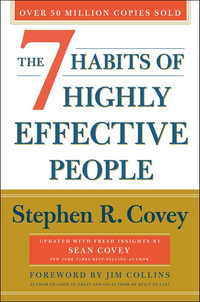Introduction to Quantitative Macroeconomics Using Julia: From Basic to State-of-the-Art Computational Techniques facilitates access to fundamental techniques in computational and quantitative macroeconomics. It focuses on the recent and very promising software, Julia, which offers a MATLAB-like language at speeds comparable to C/Fortran, also discussing modeling challenges that make quantitative macroeconomics dynamic, a key feature that few books on the topic include for macroeconomists who need the basic tools to build, solve and simulate macroeconomic models. This book neatly fills the gap between intermediate macroeconomic books and modern DSGE models used in research.
- Combines an introduction to Julia, with the specific needs of macroeconomic students who are interested in DSGE models and PhD students and researchers interested in building DSGE models
- Teaches fundamental techniques in quantitative macroeconomics by introducing theoretical elements of key macroeconomic models and their potential algorithmic implementations
- Exposes researchers working in macroeconomics to state-of-the-art computational techniques for simulating and solving DSGE models
Industry Reviews
"The book is one of the few books written for economists having expertise in mathematics. The book focuses mainly on computational aspects of macroeconomics from the perspective of 'Julia'. In this book the author has left a long lasting impact on important mathematical foundations of macroeconomics. This process makes the book self sufficient to use Julia in macroeconomics.... Now, if I have to write about the weakness of the book, then I suggest to include a few separate chapters on basic macroeconomics in this book. These chapters will make this book self sufficient from the perspective of mathematicians, statisticians, computer scientists, etc. Moreover, these basic chapters will also attract their attentions on macroeconomics from the perspective of Julia and the book will have readers from interdisciplinary areas. At the end, I would like to congratulate the author for writing a book on a programming language 'Julia' which has been gaining its applicability slowly. The book will have long run impact in the area of computational macroeconomics. Thus, this book is highly recommended for undergraduate students, graduate students, researchers, etc. those who want to learn and apply new programming language 'Julia' in their research activities of macroeconomics and allied areas. Overall, this book must be considered as an extraordinary and most useful book for Julia." --zbMath/European Mathematical Society and the Heidelberg Academy of Sciences and Humanities "A concise and elegant introduction to many of the topics involved in the solution of dynamic macroeconomic models. Caraiani 's use of Julia is a fantastic choice for teaching modern numerical methods." --Jesus Fernandez-Villaverde, University of Pennsylvania
"Julia is a computer language that is taking economics by storm. In this book, Petre Caraiani takes the reader by their hands and introduce them to a wide variety of numerical methods that are then applied to recent macroeconomic models. The book explains these methods and applies them in Julia not only those models with representative-agent (RBC and DSGE models), but also to heterogeneous-agents models. Therefore, the book is a valuable source for readers interested in numerical methods and in Julia." --Pedro Garcia Duarte, University of Sao Paulo
"Petre Caraiani's book guides the readers into the sophisticated and innovative field of quantitative macroeconomics with the aim of bridging the gap between theoretical models and modern computational techniques. Caraiani provides an outstandingly clear exposition of the numerical methods by which researchers and graduate students can approach the complex problems of solving DSGE models or setting up heterogeneous agents models. This book is a must for all those who are interested in making theoretical macroeconomics an empirical discipline." --Peter Galbacs, Budapest Business School
"This book provides an excellent overview of key numerical tools to study macroeconomic models and provides supporting programs using Julia, a frontier programming language." --Wouter den Haan, London School of Economics
"This book provides a clear and comprehensive introduction to the numerical techniques that every student that aims at doing quantitative economics should know. Not only the book provides with a minimal introduction to the theory underlying these methods, but it also offers many examples, all coded in a modern language, Julia. This book is definitely a good reference for whoever needs a quick and nice introduction to these techniques." --Fabrice Collard, University of Bern
"This new book by Petre Caraiani is a very welcomed contribution that takes the reader on a journey through computational economics, from basic numerical techniques to Heterogeneous Agents Models, while learning how to master the new and fast programming language Julia." --Alberto Russo, Universita Politecnica delle Marche
























